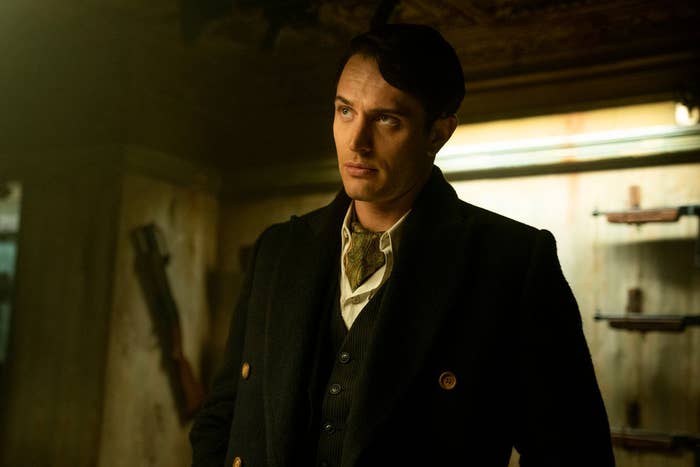
The John Wick franchise is finally getting the expansion it deserves.
The Continental, a three-part limited series on Peacock, is a prequel set 40 years before the events of the John Wick films that unravels the early life of a young Winston Scott (Colin Woodell). While we all know Scott (Ian McShane) as the Continental’s cool and collected hotel manager in the films, the spinoff instead unpacks how Scott earned his role and the tumultuous, action-packed journey it took to get him there.
For fans of John Wick, The Continental has plenty of staples to offer, including a new Adjudicator (Katie McGrath) who may as well be the best part of the show, and several fight scenes where you’ll still find yourself asking how the hell they thought of using an iron like that. For newcomers, The Continental is a great Sunday-night watch packed with gripping action and a 1970s New York at its absolute, deliciously chaotic best.
“The difficult part about doing an existing universe through a spinoff or a prequel is that you want to service the fans and you want to service the new audience too,” says The Continental’s director, Albert Hughes. “[We] hoped to create a world that's in the same city as John Wick, but on a different street or borough.”
In an interview with Complex, Hughes broke down how The Continental came to be, what it was like bringing 1970s New York back to life, and what it actually takes to direct a John Wick fight scene. He may or may not have also told us what it was like watching Juice with Tupac for the first time.
This interview has been edited for length and clarity.
So the John Wick franchise is a massive IP. What drew you to this project?
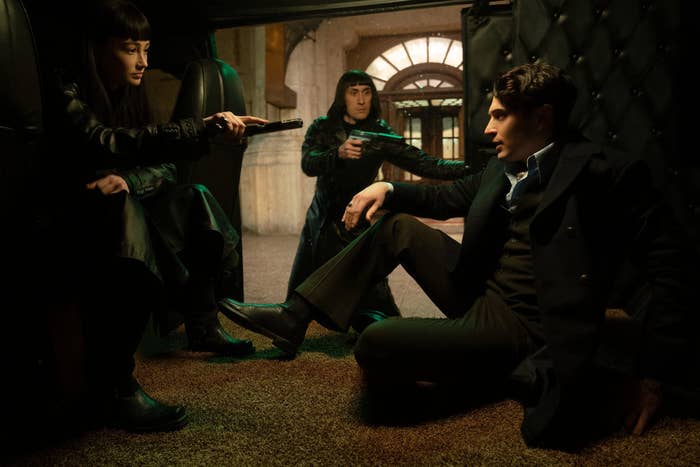
Albert Hughes: We were in the middle of COVID, and traditionally I've done things that deal with real issues like social ills or gun violence, and I just wanted to escape. I was a fan of the John Wick movies, and I always have fun watching them because I know it's not tied to anything real in life. So I thought, oh, maybe that will be fun.
I didn't think it would be the funnest thing I've ever worked on, but it ended up being the most fun I ever had working on a project. I think it had to do with dealing in something that was pure escapism.
You mentioned being a fan of John Wick. What’s your favorite film and why?
AH: This is going to be controversial because I've heard that the hardcore John Wick fans love Chapter 1, then Chapter 4, 2, and then 3. Mine almost jumbles that whole thing up. I love, love, love Chapter 3. I think my order is Chapter 3, 2, 1, then 4.
So you weren't a fan of John Wick getting killed off in the last one, I guess.
AH: Well, I live in Europe, so I didn't read it that way. Wink, wink, nod, nod.
How do you tackle a spinoff with an extensive story as John Wick’s? You’re creating something that’s referencing an existing project, but is also bringing in something new. How did you approach that?
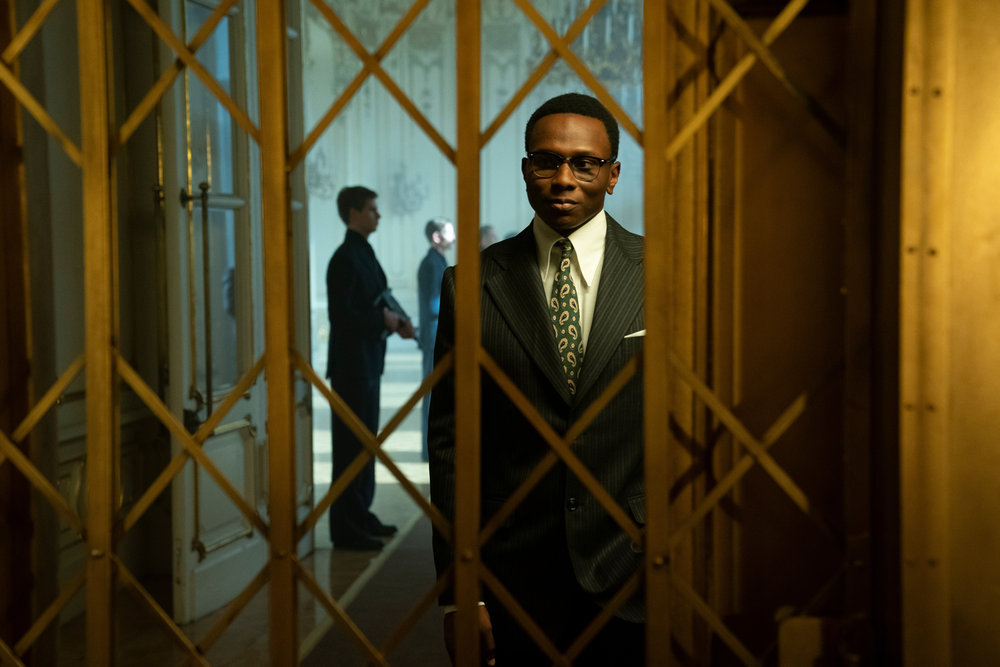
AH: The difficult part about doing an existing universe through a spinoff or a prequel is that you want to service the fans and you want to service the new audience too. But we had the benefit of [the show] taking place 40 years earlier [to the films].
1970s New York brings a whole list of fun things like music and the disco era, or 1970s movie references like Taxi Driver or The French Connection. And you hope to create a world that's in the same city as John Wick, but on a different street or borough.
In your opinion, what is the biggest difference between the films and The Continental?
AH: In The Continental, we have a longer arc of storytelling, and we have to introduce new characters outside of Winston and Charon. You have to be careful with weaving in those new characters and introducing them right to the audience, especially the hardcore John Wick fans. You also have to service them with the action and decadent costumes and locations, the things they're used to seeing [in the films].
But [we’re] also actually reverse engineering everything. New York in the 1970s had a sanitation strike, and it was a very dangerous place. It's not like it is nowadays. It's not a clean, glossy place. It's not sleek. So there’s also this antiquated look [to the show].
What was it like bringing 1970s New York back to life, and how did you do it so effectively?
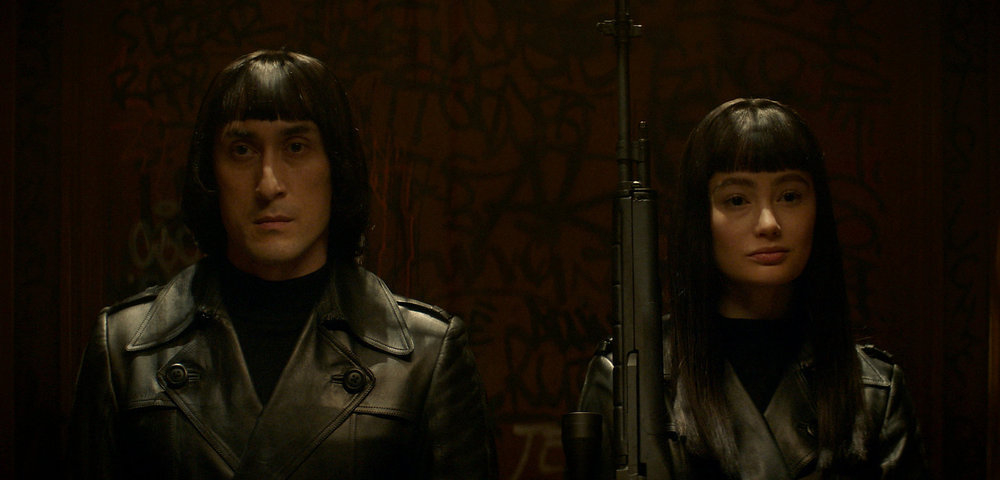
AH: I think bringing 1970s New York back to life for any filmmaker or actor is a fun thing. You have a lot of references to look at, whether it's books, music, or other films. In The Continental, I didn’t want to see bell bottoms because that's what everybody expects—it’s been overplayed. I wasn’t going for the typical trope where hair and makeup want to put these big Afro wigs on Black people. You can’t have that; you have to deprogram your white heads of department.
Even if you are a minority filmmaker, you can fall into the trope of using something you think is cool because you've been preconditioned to seeing it like that. It’s a tough thing even for me. When you talk about aesthetics, it’s like a gold sifter [a rocker box]—everything that falls through is dirt, and what fits on top is gold. That is your signature. That is your aesthetic. You become smart enough to learn, bell bottoms? No. Afro wigs? No.
Circling back to introducing new characters, how did you go about creating the new characters we see in The Continental?
AH: What I loved about the script was the showrunner and writer Kirk Ward, who is a white, 6’3” man with a mohawk, had this wonderful diverse group of men and women of different backgrounds. And it didn't seem like a cynical Hollywood ploy of, “We're going to target the Asian market. We're going to target the Black market.”
It takes place in New York. We're in New York right now, and you walk in the streets and you have no choice. You're rubbing elbows with all cultures, smelling different food, hearing different sounds and music. There's no other city like this in the world. So that's reflected in the script.
One of the first things I noticed about the series was how incredible the soundtrack was. Could you walk us through the needle drops in the show and what makes the perfect needle drop?
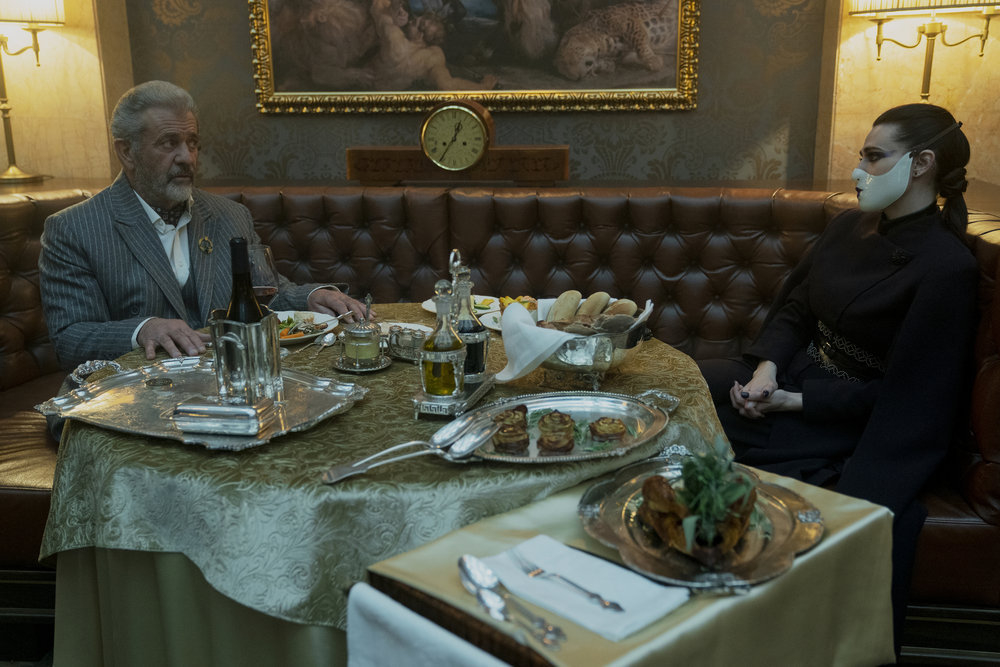
AH: The needle drops in The Continental are all eclectic. There’s punk, funk, rock, R&B, a bunch of disco. And I was wondering, could this all work in one project? And for me, it does because it's good music.
Needle drops are really tricky because if you don't get it right, you can take the audience out of the scene. They're used for various reasons, but for our show it was putting the audience in a time in place.
In your opinion, what’s the best song for a fight scene?
AH: I like irony. I think a song that's ironic and has peaks and valleys that you can contour to the peaks and valleys of a fight scene would work best. You can either have a banger, hardcore rock song like a Black Sabbath song, or a Sinatra song would work really well for a violent scene.
Action and fight sequences are obviously a staple in the John Wick franchise. What are your top five rules for directing a John Wick–caliber fight montage?
AH: The number one rule is to use [the John Wick] stunt team and their company called 87eleven. They workshop and create [a fight scene] based off of the environment they’re given. They’ll use the tools at hand; if there's a TV nearby, they'll use the TV. They're really great at it.
So that's rule number one. And two, three, four, and five is cool, cool, cool.
Are there any plans for a Season 2 of The Continental?
AH: There's always the business side of it and the creative side of it. I would love to play in that world again, but I don't know if it's going to happen. I would love to see the John Wick world continue with Keanu included.
But particularly, I really want to see someone do something with the Adjudicator because that's my favorite character.
The following question was conducted as part of Complex’s Theater Trip social series. Head to our Instagram or TikTok page for more.
Who's the most famous person you've ever watched a movie with?
AH: My brother and I did [Tupac’s] first three music videos. And we took him to see Juice for the first time on the Paramount lot in a small private screening of, like, five people.
He's in between me and my brother, [who are] watching Juice for the first time, as he's watching Juice for the first time. It blew his mind to see his image up there. It kind of changed his persona; it’s like he knew what to do with his persona in hip-hop based on that movie. That [same] night we went back, and we were all staying in West Hollywood at this shitty hotel, and he knocked on our door and his head was shaved for the first time.
That was the first time we saw the Tupac image happening. It was like that night he saw his movie, he shaved his head, and then we moved on to make two more music videos, and then Thug Life shortly happened six months to a year after that.
